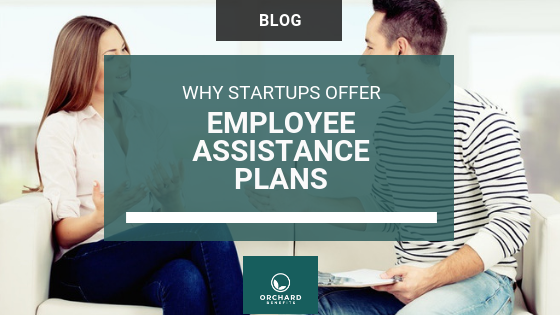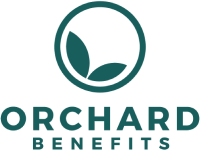Employee Assistance Plans (EAPs) have been around since the 70s. But from the 70s to about the 90s they were strictly focused on addressing psychological issues. In the mid-90s, they branched out to include other components that have really extended them to become overall wellness programs.
Today, EAPs support the overall health and wellness of your employees, their partners and their children. Some of the services EAPs commonly cover include legal and financial counsel, life coaching, nutrition and smoking cessation programs, and so on. They can also provide coverage for these services However, many people still associate EAPs as being exclusively for mental health, when in fact, they’re much more holistic now.
One of the best descriptions of an EAP that I’ve come across is this one from a provider called Aspiria. An EAP is, “A 24/7 benefit provided by your employer for you and your family to address problems that are personal or work related and interfering with the enjoyment of life. It is free, confidential, voluntary, and accessible. It consists of psychological counselling and worklife services.”
Extend beyond paramedical benefits
How does an EAP differ from a paramedical benefits plan which covers services like physiotherapy, massage, osteopathy, psychology, speech therapy, even acupuncture and some more obscure health-related services?
Most EAPs include access to 24/7 emergency counselling via a toll-free number that connects directly to professional, certified counselors. Here’s an example. Say you have an employee benefits plan with paramedical coverage in place as well as an EAP and one of your employees needs immediate counselling for a personal or family-related issue that is affecting their well-being and performance at work.
Under the EAP, your employee would be able to call for emergency counselling and also arrange for short-term, confidential counselling sessions over-the-phone or web or in person for anything from marital, to grief, to stress counselling. Then, if longer-term counselling is required, they would then use their paramedical coverage for psychology. In this scenario, your EAP and paramedical benefits coverage work hand-in-hand to provide comprehensive care and support for your employee.
There for you in good times and bad
Companies with EAPs have access to add-on services that are designed to create a healthier, happier workforce. One example includes bringing counsellors in to do lunch and learns on topics like nutrition, mental health, fitness, and so on.
They’re also beneficial when crisis hits. If you ever need access to crisis counselling for your entire company, it can be arranged for as an add-on via your EAP provider. I’ve had startups who have needed to bring in group and one-on-one crisis counselling for various reasons. With an EAP in place, these startups have been able to take advantage of an add-on that can get professional crisis counsellors in their offices in as quickly as one business day.
Separate from your benefits plan
Since January 2017, we’ve implemented at least one EAP per month for startups that have employee benefits with one insurance company and have opted for an EAP from another company.
Since an EAP is a separate product, you don’t have to get it from the same company that provides your employee benefits. In fact, some insurance companies only offer scaled back or “lite” versions of EAPs, some offer full EAPs, and some don’t offer them at all. You also don’t need to have an employee benefits plan in order to provide your employees with an EAP.
Create a happy, healthy workplace
The increase I’ve seen in the adoption EAPs this year shows that startups are really embracing the importance of keeping their teams healthy and happy. Prior to 2017, when a startup was initially looking to get a benefits plan in place, an EAP was not usually on their radar. They would often start with a Healthcare Spending Account (HSA) and the interest in the EAP came further down the road they hit about 30 to 40 employees. Now, it’s not uncommon to see smaller startups (even with 5-10 employee) show interest in EAPs. Regardless of the size of the startup, an EAP helps create a caring and supportive company culture, which pays off in productivity, satisfaction and retention.
Canadian EAPs are world-class
There’s one particular Canadian EAP provider that offers the most inclusive plan I’m aware of.
One of my clients who manages employee benefits for a large tech company with employees around the world, recently told me that this particular EAP plan is more comprehensive than any other she’s come across in any of the countries where the company has employees. It’s a phenomenal plan.
Low cost, high value
EAP pricing is dependent on the number of employees you have. Even with a smaller number of employees, ten for example, it typically works out to less than $5.00 per employee, per month. Really affordable when you consider all the benefits it provides your employees and how their health and wellness contributes to your company’s success.
If you’re curious to know what it would cost to put an EAP in place for your employees, you can do it via the IPFS chatbot. It will ask you a few questions, like how many employees you have. Based on your answers, it will actually give you the pricing per employee per month. It’s really easy.







 Toronto, ON, Canada
Toronto, ON, Canada




